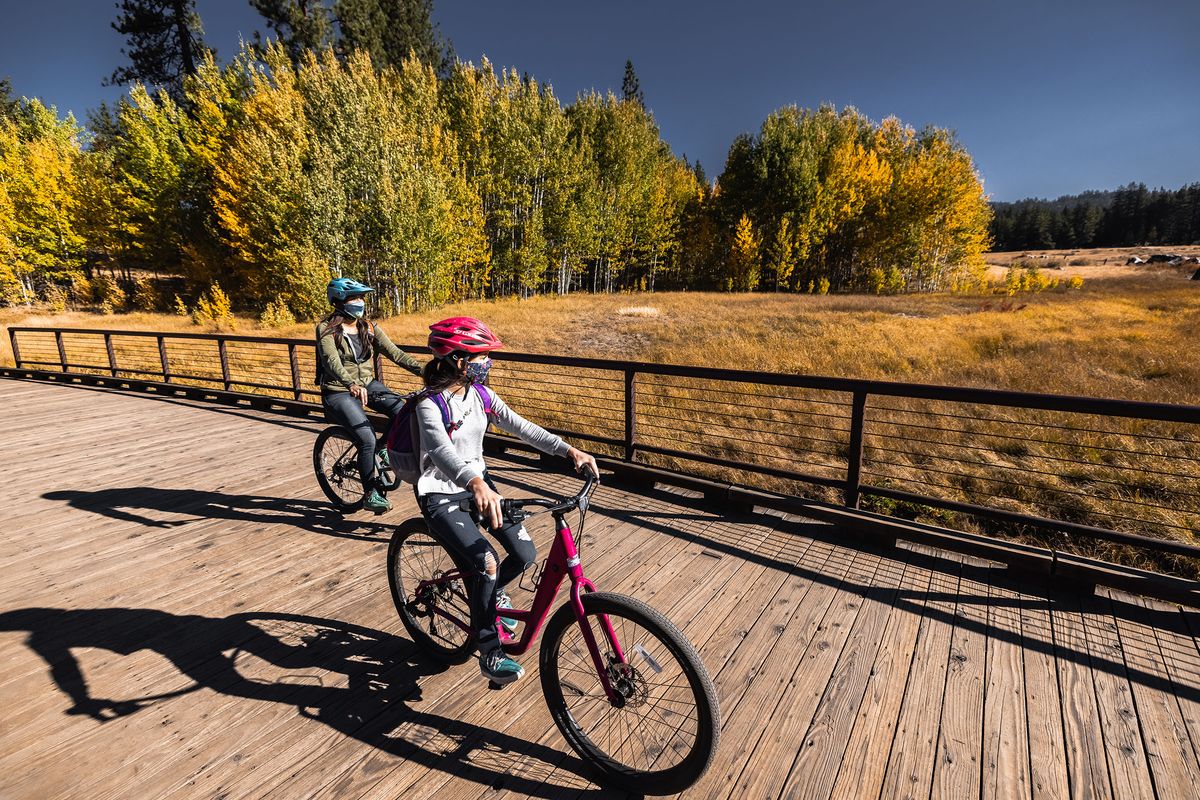How the lessons of 2020 ultimately might make travel better

The conventional wisdom is that 2020 has nearly destroyed travel. And though it’s true that COVID-19 ruined vacations and took a wrecking ball to a large part of the industry, the conventional wisdom is wrong.
“Actually, the pandemic is making travel better in many ways,” says Clayton Reid, CEO of MMGY Global, a marketing company known for its research on consumer trends and travel.
“It’s forced travel companies to introduce innovative contactless service. They have new booking procedures and a commitment to cleanliness and safety. I believe these are long-term shifts.”
He’s right. Many of the positive changes appear to be here to stay. Among them:
Contactless service: The travel industry has made a massive push toward automation, introducing cleaning robots and apps that double as hotel room keys. In the future, you may not have to interact with staff when you travel unless you want to.
New booking policies: Travel companies have bent over backward to accommodate customers who want more flexibility during the pandemic. From “no-risk” bookings that you can cancel at the last minute to eliminating change fees, experts say the new rules could be here to stay.
Commitment to cleanliness and safety: Airlines, car rental companies and hotels have introduced programs that promise a cleaner experience. Delta’s CareStandard and Etihad Airways’ wellness, sanitization and safety program are standouts. These programs will almost certainly survive the pandemic.
The return of common sense: Instead of kowtowing to big spenders, travel companies introduced policies that made sense for everyone. Take airline boarding procedures, for example. “Most airlines have now adopted a much more intuitive approach to getting travelers on the plane, typically by boarding from back to front,” says Jeff Klee, CEO of Qtrip, an online travel agency. “This cuts down on personal contact, but also just makes for a more efficient experience. Definitely a win for those folks not in first class.”
Room to breathe: Before 2020, travel was crowded and cramped unless you had a fortune to spend. No longer. “Perhaps the most significant change is simply the reduction in travelers,” says Janet Moore, the president of Distant Horizons, a travel agency in Long Beach, Calif. “I know there is talk that once there is a vaccine, all will be fine. But too many travelers are wary of taking the vaccine, and that, I believe, will impact us for quite a bit longer than we might realize now.”
Safety-first policies: Remember when airlines had use-it-or-lose-it policies for sick passengers? That forced infected passengers to choose between losing money or exposing the entire cabin to infection. Sick passengers “used to sit next to you and cough and sneeze for hours,” remembers Phyllis Stoller, the president of the Women’s Travel Group, a small-group tour company. All it took was a pandemic, but airlines have stopped doing that. They are scrubbing their planes, taking passengers’ temperatures – and if you think you might be sick, you don’t have to worry about losing your airfare.
Focus on the customer: It is all about you now. Some of the more ridiculous industry rules have vanished, and they might not return. “Long-standing restrictive pet and cancellation policies have melted away in 2020,” says Paul Hitselberger, COO of First Hospitality, a hotel management company. “This year forced nearly everyone to hit pause and take stock of what is important. Those of us in the hospitality industry were reminded of why we got into this business.”
Environmentally friendly choices: Laura Shane, a business analyst and travel blogger in Lyon, France, noticed reduced housekeeping services at hotels. “This has forced customers to reuse their towels for multiple nights,” she says. “This simple change reduces the overall environmental impact because less water is being used and less laundry is being done.” Once the pandemic ends, there is a good chance that hotels will continue to offer reduced housekeeping on multinight stays.
Spending more time outdoors: Since the coronavirus does not spread as easily outdoors as indoors, that is where Americans went this year. “The pandemic has caused travelers to focus on more active and outdoor local experiences, which is better in many ways,” says Chris Hague, COO of hotelAVE, a hotel asset management company. “Travelers are discovering national parks, ranch vacations, mountains and beach destinations.”
Politeness is back: That is the assessment of John Lovell, the president of the travel agency consortium Travel Leaders Group. “People have become more patient,” he says. “And they’ve become more friendly, as well. This includes fellow passengers as well as staff.” What has made everyone so nice? Maybe it’s the idea that we rely on one another more than ever before to travel safely – maintaining a social distance and keeping our masks on. And employees are happy to have customers during this pandemic.
And so are travel agents: Travel agents are down but not out during the pandemic. The best ones – the ones who can provide clients with useful information they won’t find anywhere else – are thriving. “We have seen a remarkable uptick in inquiries from travelers who have never worked with a professional travel adviser before,” says Haisley Smith, the vice president of marketing at Brownell Travel.
I second that. When I was stuck in France during the outbreak, I called a travel adviser to get me home. And she did.
A year ago, who didn’t want a travel experience without the crowds? Commonsense policies, more civility, a more environmentally friendly industry – those were on everyone’s wish list.
Well, now we have these positive changes, and it looks as if they’re here to stay. Thanks, 2020.
Elliott is a consumer advocate, journalist and co-founder of the advocacy group Travelers United. Email him at chris@elliott.org.